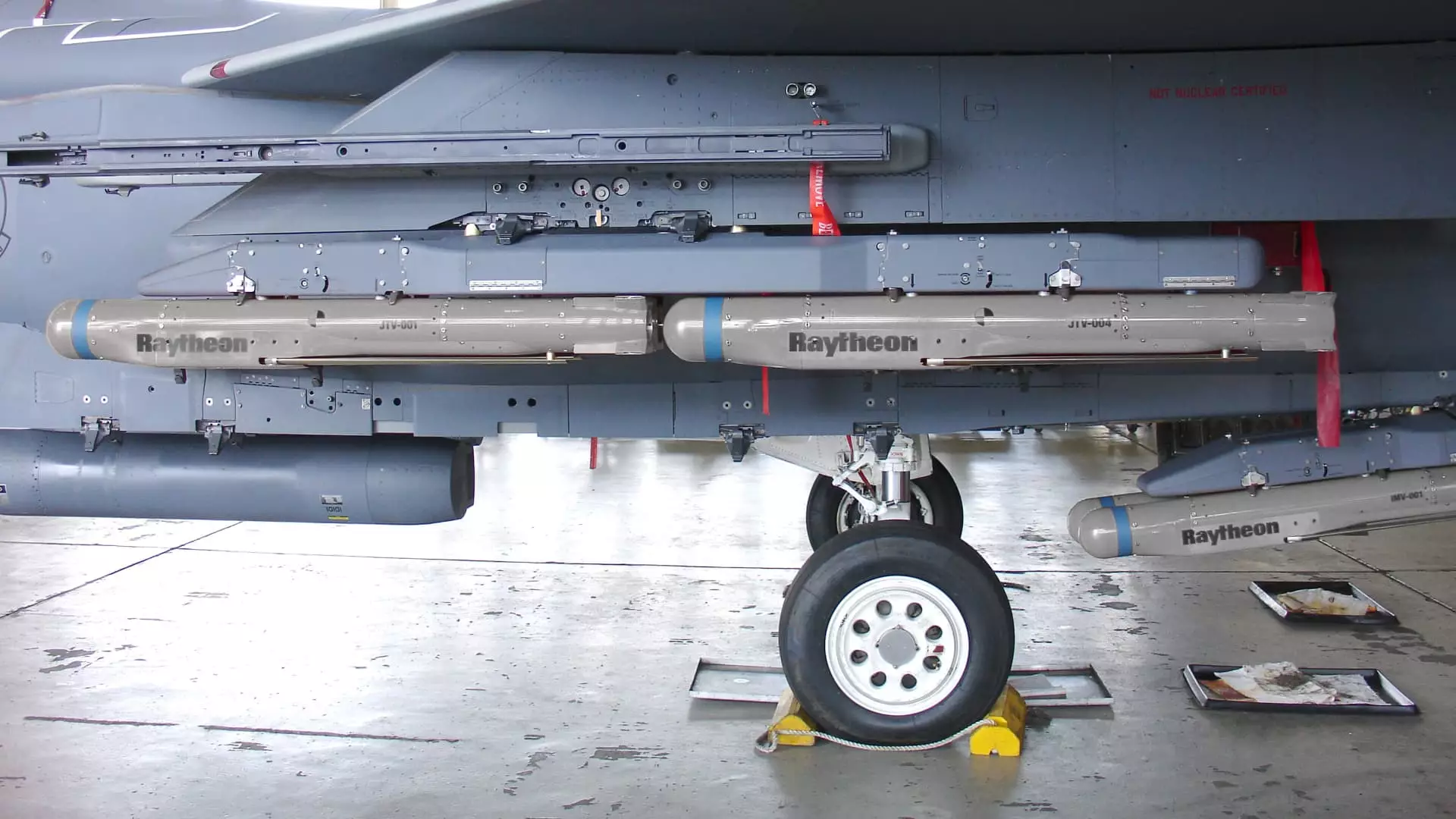In the midst of the escalating war between Israel and the Hamas militant group, Kenneth Suna, a popular TikTok influencer with over 200,000 followers, used his platform to address the ethical concerns of profiting from war. He questioned his audience, asking if they were “cool with profiting off war” and declared that he was not. Suna proceeded to list defense-focused funds such as the iShares U.S. Aerospace & Defense ETF (ITA) and the SPDR S&P Aerospace & Defense ETF (XAR), highlighting that investors have a choice in deciding where their money goes. Despite the market’s expectation that defense stocks tend to perform well during times of war, Suna’s stance reflects a growing group of everyday investors who prioritize moral grounds over potential returns.
During the recent conflict, the iShares U.S. Aerospace & Defense ETF experienced a 4% increase in the week following Hamas’ attack, ultimately finishing the month of October with a 3.7% gain. In contrast, the benchmark S&P 500 index only added 0.5% that week and ended the month 2.2% lower. Retail traders initially poured into defense stocks and funds in response to the invasion; however, inflows have since cooled, according to Vanda Research. While defense giant RTX saw a 14% climb since the beginning of October and became a top sector pick among individual investors, not everyone shares the same perspective. A screening tool called Weapon Free Funds, provided by the shareholder advocacy nonprofit As You Sow, indicated a significant increase in visits during the conflict period. This tool helps individuals determine if their funds are invested in companies associated with defense or other controversial themes, empowering investors to align their investments with their values.
Andrew Behar, the CEO of As You Sow, acknowledged the difficulty for investors with money in large funds to understand which companies they are investing in. He emphasized the importance of individuals having the right to decide how their money is invested and aligning their investments with their values. As You Sow’s screening platform provides letter grades to funds based on their defense exposure. An “A” signifies no flagged holdings in a military weapons screen, while an “F” indicates a significant percentage of holdings tied to defense. This tool exists to facilitate informed decision-making, offering investors a way to ensure their investments are in line with their ethical principles.
Critics of defense companies argue that periods of geopolitical strife often lead to an increased demand for their products. The ongoing conflict between Israel and Hamas, alongside the war between Russia and Ukraine, have already impacted these businesses. General Dynamics CFO Jason Aiken indicated that artillery demand would likely experience upward pressure in light of these conflicts. Those who express moral qualms about investing in defense stocks have historically pointed to the death toll of war as a reason for their uneasiness. The surge in interest observed by Weapon Free Funds during the conflict surpassed the level seen after Russia’s invasion of Ukraine, demonstrating a difference in public consensus regarding these conflicts. International support for Ukraine’s defense was widely acknowledged, while opinions on the Israel-Hamas war and calls for a ceasefire remain more divided.
The ethical considerations surrounding investments reflect a growing trend among investors. Recent data from U.S. Bank revealed that over 80% of Gen Z and millennial investors would knowingly underperform the S&P 500’s 10-year return if it meant their investments aligned with their beliefs. Investors are increasingly seeking to ensure that their portfolios do not include holdings that contradict their values. According to Brad Barber, a finance professor specializing in investor psychology, investors often make decisions based on a desire for consistency. If individuals hold anti-war values, they are less inclined to invest in stocks that enable war. Making investment decisions that align with personal values can be a way to cultivate a portfolio that embodies one’s principles.
Kenneth Suna finds himself in a precarious position, torn between conflicting perspectives. Some argue that war is inevitable, and if it is going to happen anyway, one might as well benefit financially from defense stocks. On the other hand, younger individuals express hesitancy to invest due to concerns about corporate imperfections and the perceived inequity of the stock market. Suna walks a fine line, recognizing the importance of investing for his future while also wanting to maintain moral integrity in his choices. Although decisions about investments can be complex, Suna believes that avoiding defense stocks was a clear and straightforward choice for him. He captures the sentiments of many young investors who refuse to compromise their moral stance when it comes to their investment decisions.
The ethical dilemma faced by investors during geopolitical conflicts highlights the growing trend of aligning investments with personal values. As individuals become more conscious of the ethical implications of their investments, tools like Weapon Free Funds provide investors with a means to assess their portfolios’ alignment with their values. The surge in interest during the recent conflict underscores the increasing demand for investments that resonate with personal beliefs. Ultimately, investors face the delicate task of balancing financial aspirations with the desire for moral coherence in their investment decisions.


Leave a Reply